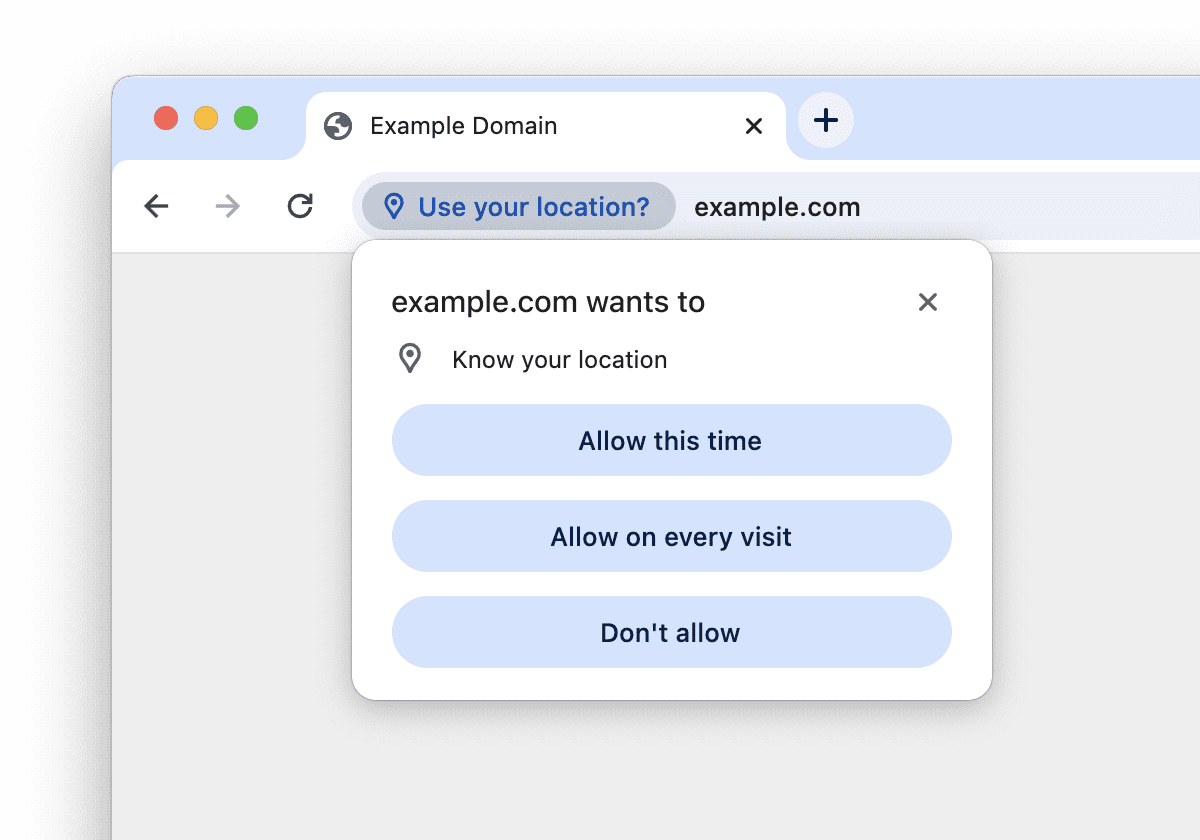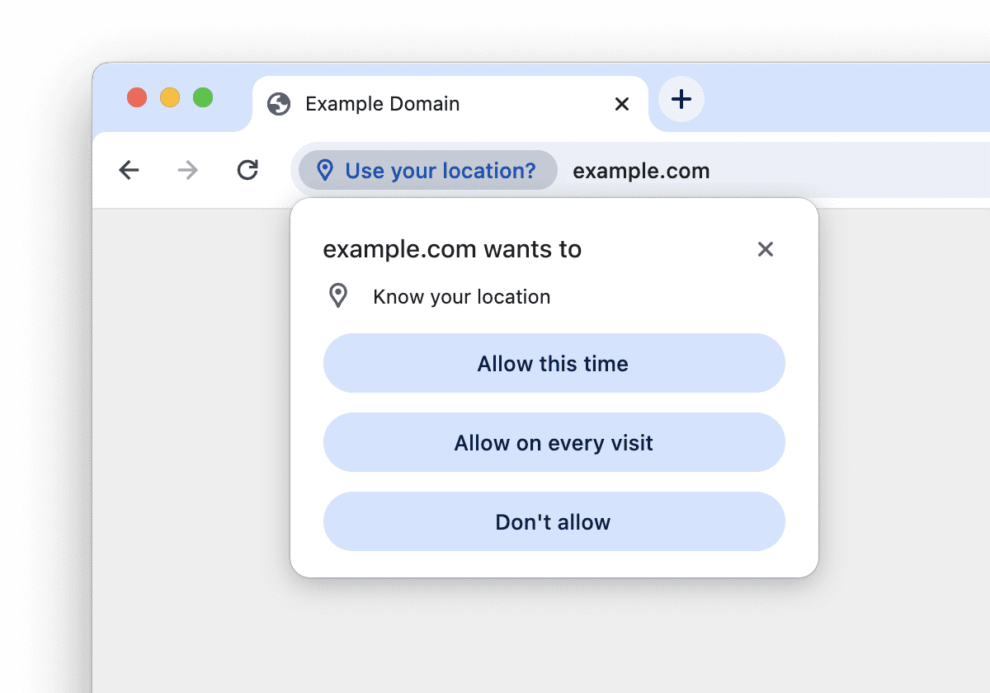Google Chrome for Android is gearing up to introduce a significant privacy enhancement with the addition of one-time permissions for websites. This new feature, similar to existing permissions on the desktop version, is designed to give users more granular control over their personal data, particularly in terms of camera, location, and microphone access.
Key Highlights
- Google Chrome for Android is set to add a new feature: ‘Allow this time’ one-time permission.
- This feature aims to give users more control over their camera, location, and microphone access on websites.
- Initially identified in the Canary experimental channel, the feature is currently non-functional but indicates upcoming changes.
- The update follows Chrome’s desktop version, which already has similar permissions.
- Chrome 116 will introduce this feature, focusing on permissions like geolocation, camera, and microphone.

Understanding One-Time Permissions
The upcoming feature, first spotted in the Canary experimental channel of Chrome, is currently non-functional but suggests an imminent rollout. Chrome for Android will soon allow users to grant permissions on a per-session basis, adding a new dimension to the way personal data is accessed by websites.
Benefits of the New Feature
This update will enable users to:
- Temporarily allow access to sensitive features like the camera, microphone, and location.
- Make decisions on a per-visit basis, without the need to permanently block or allow access.
- Enjoy increased control and flexibility, enhancing the overall browsing experience.
Chrome’s Commitment to User Privacy
With this move, Chrome aligns itself with other major browsers like Safari and Firefox, which already offer similar capabilities. Google’s initiative reflects its ongoing commitment to user privacy and control, acknowledging the need for more dynamic permission settings in the ever-evolving digital landscape.
Functionality and Implementation
- The new feature was initially identified in Chrome’s Canary channel, a platform for testing experimental features.
- When fully implemented, this feature will allow users to grant temporary permissions for camera, microphone, and location access on a per-session basis.
- The upcoming Chrome 116 update is anticipated to be the version introducing these changes.
User Experience and Control
- The one-time permission option adds a third choice to the existing ‘block’ and ‘allow’ options, named ‘Allow on every visit’.
- This addition aims to simplify the user’s decision-making process by offering a clear, temporary permission option.
- It’s particularly beneficial for users who are hesitant to make permanent decisions about website permissions.
Comparison with Other Browsers
- Chrome’s move to include one-time permissions is in line with similar features already available in browsers like Safari and Firefox.
- This update positions Chrome as a competitive and user-centric browser, keeping pace with industry standards for privacy and user control.
Google’s Privacy Focus
- By introducing this feature, Google reiterates its commitment to user privacy and data protection.
- The one-time permission feature reflects an understanding of users’ desire for more nuanced control over their personal data.
In summary, Chrome for Android’s upcoming ‘Allow this time’ feature marks a significant step in user privacy and data control. By enabling one-time permissions, users will have more power over how their personal information is accessed by websites, reinforcing Google Chrome’s position as a leading and user-focused web browser.





